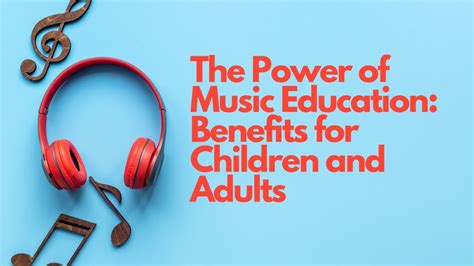Introduction
Music plays an integral role in human lives, captivating our emotions, enriching our experiences, and fostering creativity. For students, music offers an array of benefits that extend beyond entertainment, empowering them academically, socially, and emotionally. This comprehensive guide explores the multifaceted significance of music in education, providing students with invaluable insights and resources to harness its transformative potential.

The Role of Music in Cognitive Development
Studies have consistently demonstrated the profound impact of music on cognitive development:
- Enhanced memory and recall: Music improves students’ ability to retain and recall information by strengthening memory pathways.
- Improved spatial reasoning: Musical training strengthens spatial reasoning skills, aiding in mathematics, navigation, and problem-solving.
- Increased attention and focus: Music promotes sustained attention and focus, reducing distractions and improving academic performance.
Music and Emotional Intelligence
Music goes beyond cognitive benefits, nurturing students’ emotional intelligence:
- Self-regulation: Music helps students develop self-regulation skills by allowing them to express and manage their emotions healthily.
- Empathy and perspective-taking: Music exposes students to diverse cultures and perspectives, fostering empathy and understanding.
- Resilience and coping mechanisms: Music provides a safe and expressive outlet for students to navigate challenges and build resilience.
Music and Social Development
Music fosters social bonds and enhances cooperation:
- Collaboration and teamwork: Music ensembles require students to work together, developing communication, coordination, and leadership skills.
- Cultural awareness: Music exposes students to diverse musical traditions, promoting cultural appreciation and understanding.
- Community building: Music events bring students together, creating a sense of belonging and shared experience.
The Benefits of Music Education
Academic Benefits:
| Benefit | Impact |
|---|---|
| Improved memory and recall | Higher grades, better performance on standardized tests |
| Enhanced spatial reasoning | Success in STEM subjects, problem-solving tasks |
| Increased attention and focus | Reduced distractions, improved academic engagement |
Social and Emotional Benefits:
| Benefit | Impact |
|---|---|
| Self-regulation | Reduced stress, improved emotional well-being |
| Empathy and perspective-taking | Increased tolerance, understanding of others |
| Resilience and coping mechanisms | Enhanced ability to handle challenges, build resilience |
Cultural Benefits:
| Benefit | Impact |
|---|---|
| Cultural awareness | Appreciation of diverse traditions, enhanced global understanding |
| Community building | Sense of belonging, shared experiences |
| Empowerment of students | Creative expression, self-confidence |
Common Mistakes to Avoid
While music is a powerful tool for education, it’s essential to avoid common pitfalls:
- Overemphasis on performance: Focusing solely on performance can overshadow the educational value of music.
- Lack of diversity: Limiting students to a single musical genre can hinder their cultural understanding.
- Ignoring student interests: Tailoring music activities to students’ interests ensures their engagement and motivation.
Why Music Matters
Incorporating music into education is vital because:
- It enhances brain development: Music stimulates multiple brain regions, promoting cognitive growth.
- It fosters creative thinking: Music encourages imagination, improvisation, and problem-solving.
- It promotes well-being: Music reduces stress, improves mood, and enhances relaxation.
- It prepares students for the future: Music develops skills essential for success in various fields, including communication, creativity, and collaboration.
How Music Benefits Students
Academically:
- Improved memory and recall
- Enhanced spatial reasoning
- Increased attention and focus
Socially and Emotionally:
- Self-regulation
- Empathy and perspective-taking
- Resilience and coping mechanisms
Culturally:
- Cultural awareness
- Community building
- Empowerment of students
Music and Technology: Innovative Applications
Technology opens up new possibilities for music education:
- Virtual reality (VR) music immersion: VR experiences provide students with interactive musical environments.
- Artificial intelligence (AI) music composition tools: AI can assist students in composing and arranging music.
- Music apps and software: Educational apps and software offer engaging and accessible music learning experiences.
Conclusion
Music is an indispensable tool for education, empowering students academically, socially, emotionally, and culturally. By embracing the power of music, students can unlock their potential and thrive in all aspects of their lives. This guide provides a wealth of information and resources to help students and educators harness the transformative benefits of music in education. May the melodies of music continue to inspire, nurture, and enrich the lives of students for generations to come.
